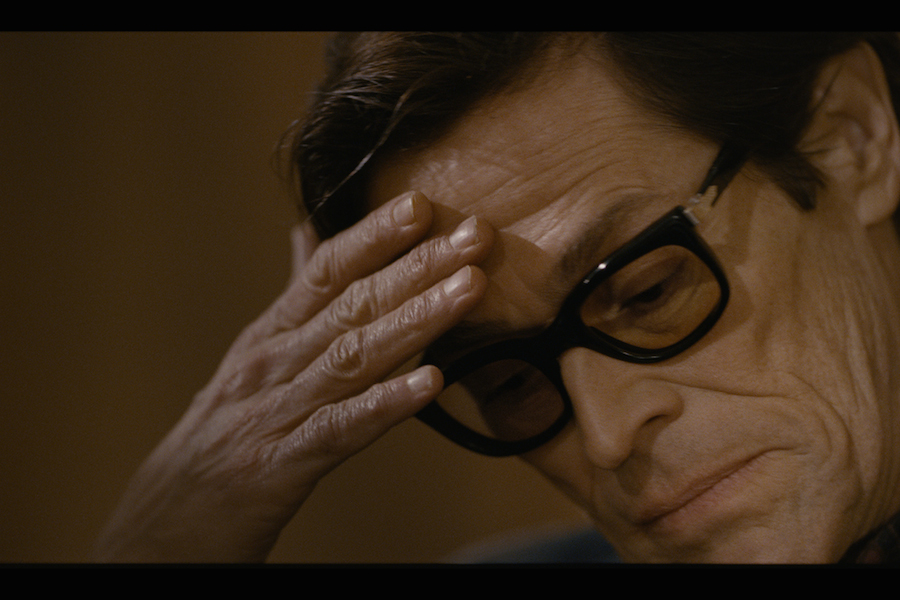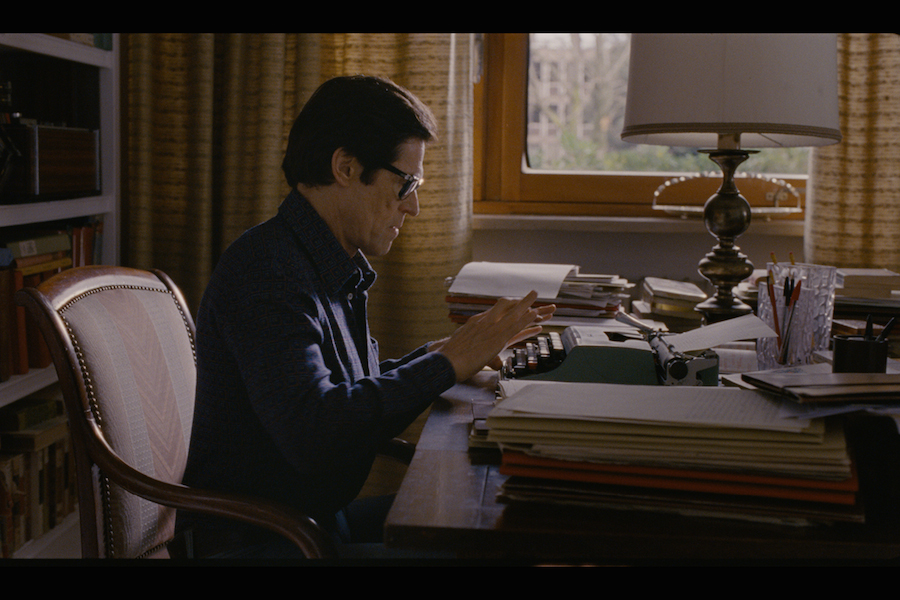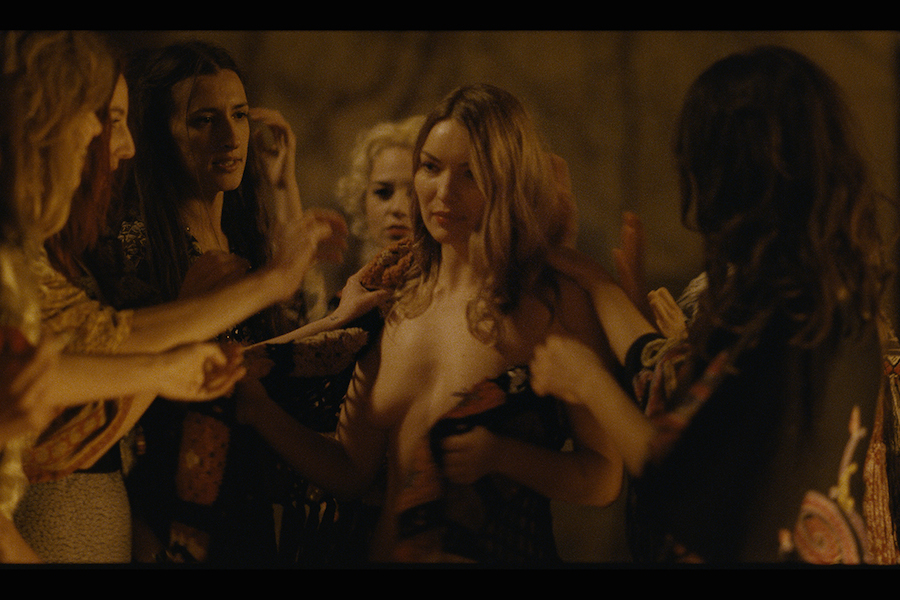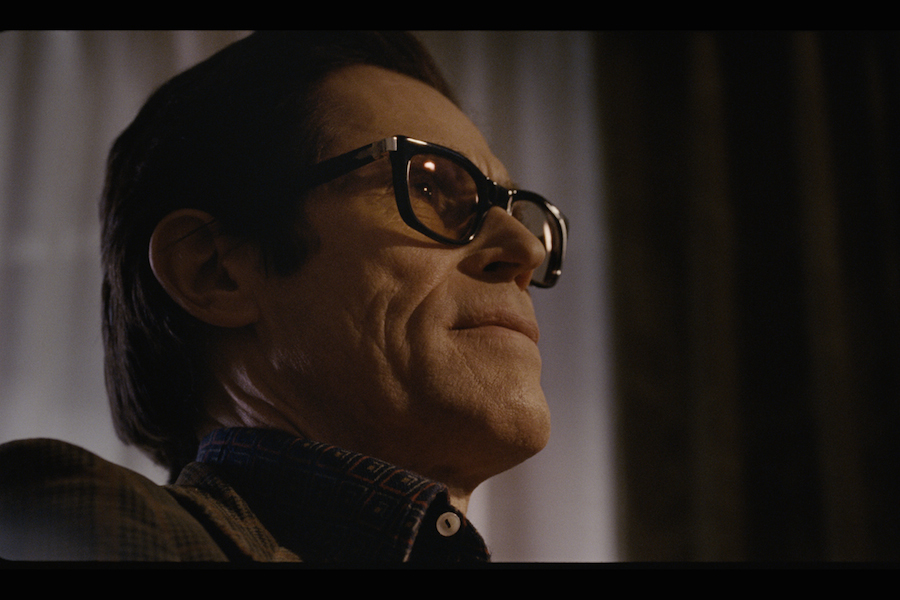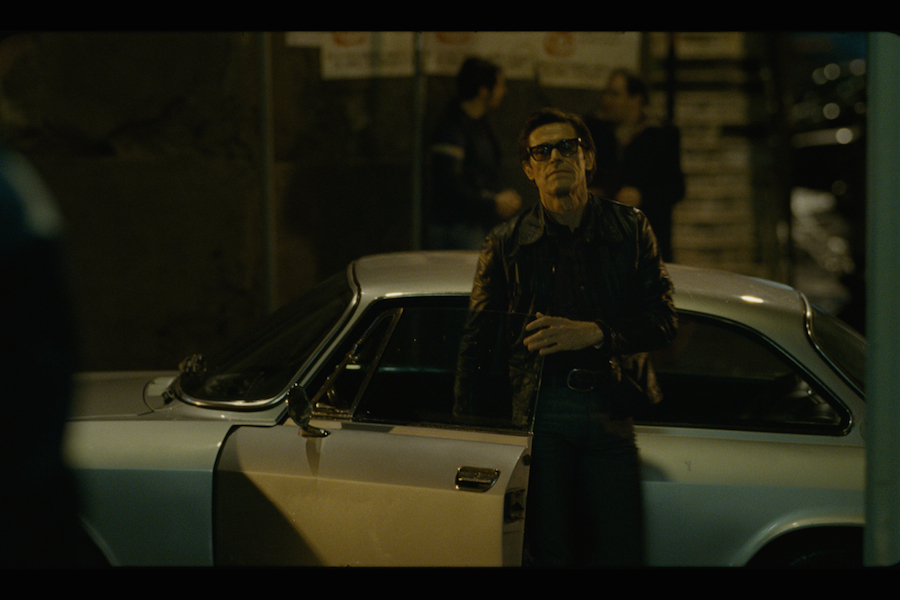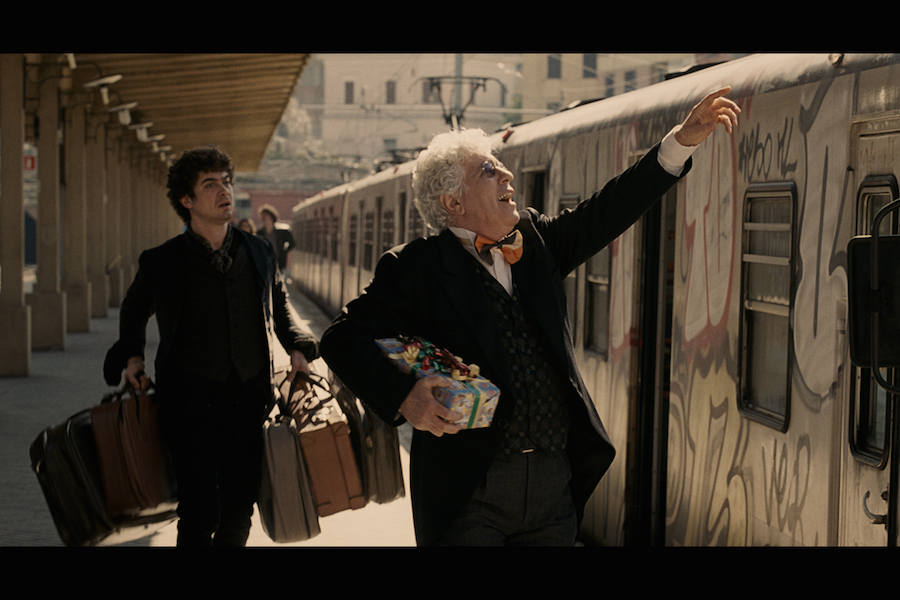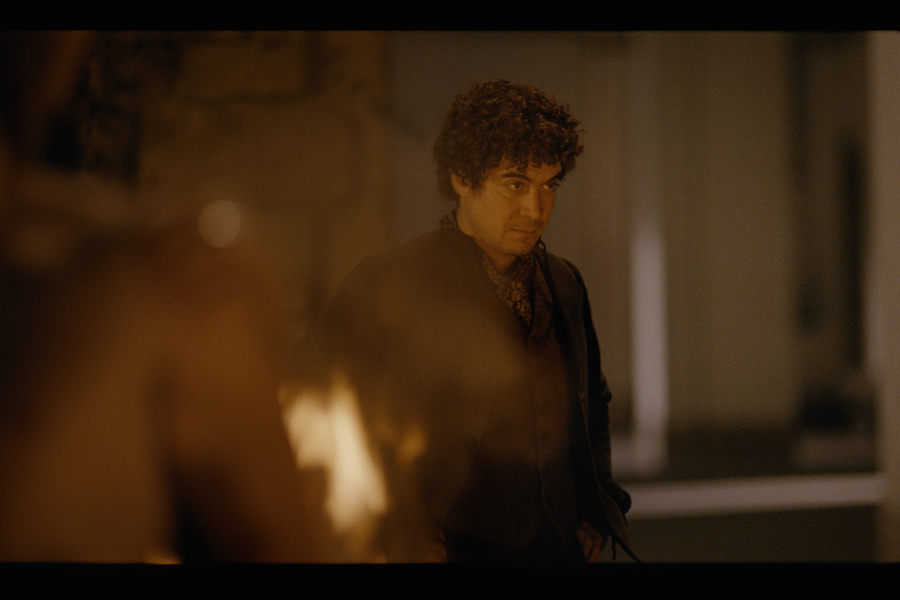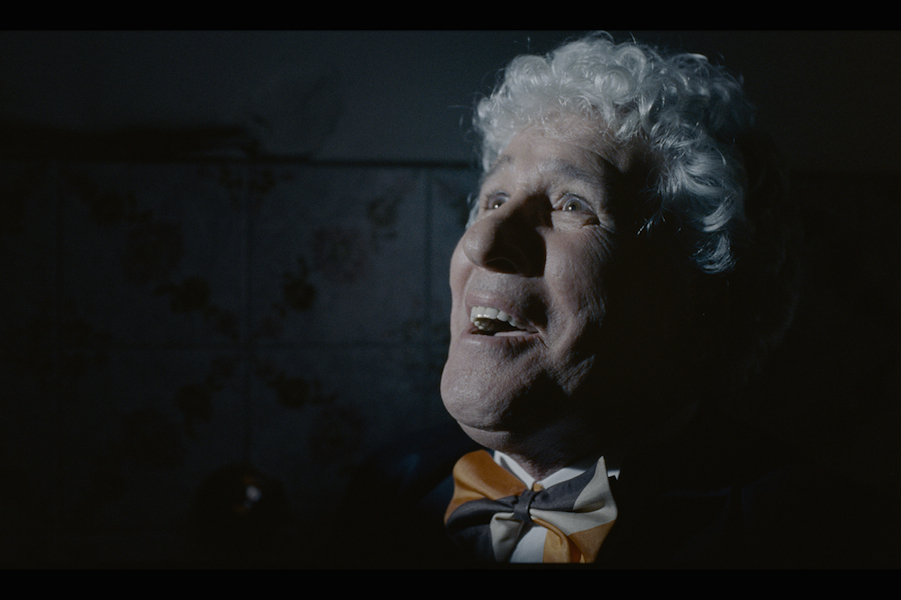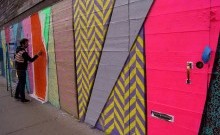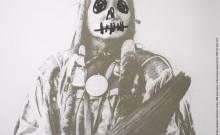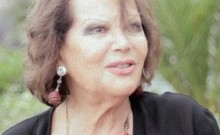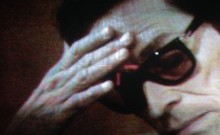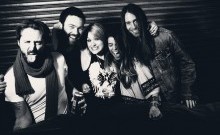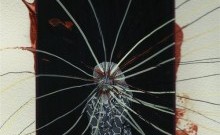Caro, Angelico Maestro / My Dreams Intact
A conversation with Abel Ferrara & Pier Paolo Pasolini
I fled with my mother, a suitcase,
& a few gemstones
that turned out to be fake
we left my father
next to a little fire for the poor
on a train as slow as a cargo train
across a plain covered by a light,
hard layer of snow
we were going towards Rome
---Pier Paolo Pasolini
For many, American visionary Abel Ferrara requires little introduction. But for some, they have only heard the printed & whispered legend, what little fantastic truth left in it spliced & sutured through with gossip and hushed tones that hint at a dangerous, outlaw persona. Tales of discord and excess, rumors of a self-destruct button pushed one too many times, and a decline that never took place. In truth, what his lasting resilience & repeated resurrections draw light upon is a spirit of perseverance found only in the most brilliant of artisans. From raw, gangster epics such as King of New York and The Funeral, to fables of redemption through the lens of a corrupt urban landscape such as Bad Lieutenant & Mary, the man many expected to wither away into the shadows has continued to present us with some of the most powerful cinematic works we have.
From some hotel in the strange city of Rome, I write this & remember so well being young & wandering New York, obsessed, looking for Abel, for signs of him, everywhere, the ghost of him, the vision I had of him as a kid. He was like a tide always rolling in & out of the same shores as I rolled.
To Abel, Pasolini always represented a venerable, reverent master. "The real deal," as he would say. Just as Abel always represented, the same, for me. He has pursued Pier Paolo, much as I discovered when I was 20, as I have pursued him.
There is something, something, something in the cinema that inspires the reporter in us all. The divine Clark Kent, awakened through the dream of being Superman. We start at the comics, & move beyond, into the bowels of the police blotter. We imagine ourselves heroes, & search for some truth, as a way to make the dream come true.
Now, after a series of consecutive works still unwaveringly driven, Abel leans more and more towards the same cut of relentless questioning those of us familiar & obsessed have by now come to expect of him, with Pasolini, a portrait of the late poet & maestro di regia Pier Paolo Pasolini, played by his most oft collaborator as of late, Willem Dafoe, the crown prince of immersive portrayals, from Jesus Christ himself to Max Schreck in the flesh. Its focus zeroes in on Pasolini on the last day of his life, cut short by a brutal, yet unsolved homicide.
Truth requires a beginning, a middle and an end, and is always hidden. What follows is a dialogue between two masters and a member of their congregation, moderated and woven together from separate times, blurring the line between the story & the storyteller till we can no longer see it, dreaming of a continuum where the recorded truth & the narrative fiction can coincide peacefully. The Poet, The Heretic, A Student, not necessarily in that order.
-------
grown up?
never - never, stay always green
never abandoned to happiness
never touched by real remorse
in the anxiety of sin
equal, always equal
at the very source
of what I am
& still, there is someone inside of me
thinking of an absent, weak
puerile god:
but his voice is so human,
it is almost a song.
I spoke to Abel in Rome. We had not seen each other since the US premiere of Mary, 2008.
Evan Louison: So, tell me about the new picture.
Abel Ferrara: [With Pasolini,] We're coming from a point of a lot of respect. We dig the guys work, we dig everything about him. He's really, ya know, essential viewing for me, from the first time I saw him. His death, in 1975, was also kind of a very outrageous moment, all the bullshit surrounding him, the killing, when it comes down to it, we probably were gearing up to make this movie from the moment we heard he was dead.
I lived that page of a novel,
the only one of my life:
as far as the rest --- what can I say ---
I have been living inside a poem,
like every obsessive.
EL: You felt a sense of being destined to make this one?
AF: Ya know, in a sense, we never thought about doing films on real people, until lately, when the documentary thing started bringing us to that [Ed. Note: Between Go-Go Tales & 4:44, Abel completed three documentary-narrative hybrids, Chelsea on the Rocks, Mulberry Street, & Napoli Napoli Napoli). And something between doing those documentaries & then doing 4:44 about the last day in the life of a character, the character that Willem played there, we liked the structure of it, there was something there, & trust me, we're not into making a biographical movie, but we are interested in [Pasolini] & his work, his life, & where he was going.
I want to die with all my gold on, like the pharaohs
[Ed. Note: Pier Paolo Pasolini, Italian journalist & filmmaker, was found dead on
the beach in Ostia, Italy, on November 2nd, 1975]
AF: We kind of used the events of the last day, we researched them in a documentary way, against his writings. He was writing a book called Petrolio [Ed. Note: Unfinished manuscript which dealt with corruption in the Italian oil industry], so we shot a few scenes from that, & we also shot a few scenes from the movie he was gonna do after Salo [or 120 Days of Sodom, 1975], called Porno-Teo-Kolossal, which was a script he was gonna do with Nenneto Davoli & Eduardo De Fillipo.
I read little, but I paint a lot to make up for it
self-portrait with flower in mouth
self-portrait with fever
EL: You talked about 4:44 being a focus on the last day on earth, not just for one man, but for all mankind. But that phrase is something I remember you saying a lot when we first met, & as an expression, seems to have stuck with you over the years.
AF: Oh yeah, you remember that?
EL: I remember you saying to me, "this is my last day on earth." What is it about someone's last days, someone's last hours, what they do, & how they spend that, that sets it all on fire for you?
AF: Well, Willem was expressing it as, every time you go to sleep, who knows if you're even gonna wake up? Especially when you're getting to be our age, ya know what I mean? It could be about anybody though. You really don't know when you're gonna die, & in a sense, if you really look at life the right way, if you can live in the moment, I think you're better off, without all of what becomes a lot of false expectation. You know how life is: you're planning for shit that never happens, you're planning on stuff, making plans, it's kind of… I don't know… We have what we have, we have this moment, & you could say it's a day, ya know, "one day at a time," but that expression, it's an expression that just has always had a resonance [for me] --- You live every moment as if it's your last, you live every day of it all as if it's your last. It resonates. You try to, I try to. I try to give it more, give it no timeframe, & not get caught up in the spirits & resentments & the guilt of the past. Every thought, every action, of how you feel right now, it has great effects. So all you can affect, is really just this second. To try to take your life in a more spiritual way, that's something that makes a lot of sense to me.
I am a force of the past
EL: Do you feel like the currents you're describing, of the pursuit of a more spiritual side of things & trying to develop that wherein it's been lacking previously or even a failing of yours in your past, that those are something you & Pasolini had in common? Because to me, I've always felt like you guys were like the same thing.
AF: When you say that, how do you mean?
EL: I feel like you were making documentaries about the world you saw around you & really about yourself long before you started admitting it, started calling your pictures documentaries & started calling your films autobiographical, & I feel like Pasolini did the same thing --- he called it like he saw it in the world around him, & made films that came as much from him as it did from his very real-world subjects. Since I've come into contact with both your work & his, & I came into contact with yours way earlier, I always felt like they were intertwined in a really palpable way. I mean, yes, you were making hardcore films from the street that were stylized versions of reality, but in a way, so was he, especially in the beginning. Is that something you were conscious of?
AF: Well I was a student of his, of his films. He wasn't [a student] of mine.
And I, a foetus now grown,
roam about more modern
than any modern man,
in search of brothers
no longer alive
EL: Much in the same way that I've been a student of both of yours, of your films. Did you feel like you were pursuing him in the same way?
AF: He was a part of a tradition, a movement --- Rosselini, Antonioni, & Bertolucci after that. I'm sure if you're hard pressed you could call it all the same style. These guys are working with the same DPs, & a lot of the same actors. He wasn't the only one using guys right off the street. In some ways, you get a real powerful performance when you utilize non-actors. At the same time, he used opera singers, he used musicians. He ran the whole gamut of it. For him, these films didn't come out of left-field, he was a writer, a poet, a politically active guy, a journalist, but not just any journalist. He was a rabble-rousing, muckraking, troublemaking motherfucker.
a different witness
EL: Yeah, but that's the thing I'm talking about: So were you. That's what it seems like you were after too --- to stir it up. To tell the truth, no matter what, or at least seek it. I feel like now, at least recently, you're finally laying claim to it, at least more officially, actually making so-called "documentaries," actually making things that are more "historical," or "biographical." Is there something that's the same about being a journalist & being a filmmaker? Is there something that was always a document of the world around you, of your world, even in the scripts you did not write?
AF: Yeah man, that's really the crux of it. The events that happened, versus the events you create, versus the imagination. For me, I want to use it all. When I rethink it, I mean, first of all, no matter what you read, if it's in a newspaper or a book, the difference between a fiction & a non-fiction, it's really just your perception of it, how you read it, & what you believe & what you don't believe. And even your imagination, how do you separate that from your consciousness, from the events you experience in your subconscious, what you think you see, what you dream. You're looking at something on this side of the street, when your mind is absorbing something on that side of the street. Not to get complex about it, but when you look at the events of someone like Strauss-Kahn or Pasolini, you can fictionalize it, but who's to say what's true? In the end, I guess it doesn't matter. You're making a movie, so you accept that some of it, even events that really happened, some of it no one knows, some of it you can assume, some of it you can imagine. If someone tells you something, is that really the truth? Just because you put a camera on somebody & they're talking to you, or just because you're a journalist, you ask someone a question, does that mean you're getting the right answer? This pursuit of the truth is really the deal. Doing a documentary, the reason we incorporated a lot of fictional elements is we're trying to get at…
EL: What no one can know?
AF: Exactly man. At least, a perception of what is real. Sometimes you have to make it up.
EL: You have to make it up to find the truth.
AF: Yeah, I mean, the truth isn't just there. You gotta seek it out. And you're gonna use your imagination to get at the center of it. Pasolini was talking about naming names of who blew up the train station, who blew up the airplane with some left-wing oil guy on it. He's saying, "hey man, I'm gonna find out the truth here." But you know, I'm not a detective, I'm not a journalist, I'm a filmmaker. I'm an artist. I'm gonna find the truth through my imagination.
EL: Is that the position you feel the film takes in regards to his death?
AF: Listen, when you're living a certain lifestyle, & I mean, he was living on the edge, & he knew it. He knew it. He was kind of an in control, out-of-control human being. Let's put it this way: when he died, the people who knew him, they were not surprised.
EL: Because he was searching for something.
AF: Well yeah… But… Maybe he found it.
one of many epilogues
AF: When he was found dead in the middle of nowhere, on a beach 45 minutes from where you are right now, it was not a shock to a lot of people, the people who were close to him, they had to accept it. You can spin it a lot of different ways. But I think a lot of the spinning of his death, it's more for commercial reasons.
EL: Do you feel like he was searching for something in his choices that was similar to what you were searching for in your past choices? And now that you're on the other side of a lot of those choices, do you feel like you've surpassed a point that he maybe never got a chance to be past?
AF: That's a tough question. I don't know how he was. I don't want to make a judgement on where he was at. Where I'm at, personally, is I've confronted the alcohol & drug use, & really abuse, not use, ya know? I changed. I stopped. It just was a conscious decision that that's not where it's at. What's stopping it, for me, it's just me being convinced that by far, it's the right decision, the right way to live. It would be presumptuous of me to make a value judgement on his lifestyle. I can make it on mine. Mine was at zero. But I'm not gonna make it on him. And again, I'm not making a documentary on Pier Paolo Pasolini. Willem is playing him. I'm making a film as much about Willem as much as Pasolini, & I'm making a film about me just as much as I'm making a film about Willem or Pasolini.
maybe he found it
EL: That was something that I wanted to get at. Between you & Willem, is that link, is there something in that continuum & dialogue, is that something that's palpable across this whole span of films from New Rose Hotel onward, & has the relationship reached some kind of culmination in this film?
AF: Well, it's only the fourth film we've done together, so I don't think it's the culmination, not yet. Listen, he came from the mid-west, I came from New York, but he came here at the same time I started out doing shit, & we have a lot of the same influences. Pasolini is just one of them. And we have a lot of the same history. Every director is looking for an actor that can help you balance the whole act. You need the actor, he's the front man, he's the guy the camera's pointed at. Everybody else is involved, the writers, the editors, the musicians, the DP, everyone's important, including me, but the camera's pointed at one guy. The actor. It's not pointed at the crew, it's not pointed at the director, it's not pointed at me, even if it is, in a way. He's gotta embody the hopes & dreams of the whole gang.
We have lost the poet
EL: If you look at some of the stuff that Pasolini wrote, when he was younger, in his films & his writing, & then examine the stuff he wrote when he was older, you can sense the progression in how he changed.
In Accatone, the main character is about to jump off the bridge into the river & the little kids on the shore yell at him, "Are you going to jump with your chain?" And he says to them, "I want to die with all my gold on, like the pharaohs."
You take a line like that, & then examine his poetry later on, where he said, "I am a force of the past. The world has tired of me. It just doesn't know it yet," is that a progression you identify with, the same as your work, your writing has changed? First you have a nihilistic perspective, then you move forward, & it seems completely different. At the age of 39 with his first film, he's documenting something nihilistic about the slums, & then he's older & he looks back at that time & he sees how he's grown, how he's grown old.
AF: Well he was filming all of it in such a loving way.
EL: There was mercy.
AF: There was compassion. He was in love with them, & then he became more jaded later on when what he felt was the destruction of his culture, & his world, of Italy, by consumerism ---
EL: Right. He called it acculturation.
AF: ---Exactly. He called it the "evil to end all evils," worse than the fascists of Salo, worse than all of that. He's complex. The characters in his films, his poetry, it's complicated, but his attitude towards these young men, you could call it nostalgic, you could call it whatever, but it's coming from someone who was openly gay in a very tough world to be that way. The guiding light for me, is the pursuit of freedom. I mean, the guy's not taking a backwards step.
He's not backing up for one second. His work, his art, his life, to be open the way he was, like him, he was taking the position of all positions. Nevermind the brilliance of his poetry, his films --- just as a free man, as a free individual, living the life he wanted to live, that's the real deal.
EL: There is a certain mercy & compassion to both of your work. There is a lack of judgement towards the darkness, it's not just the pursuit of freedom that links your worlds.
AF: It was a tragedy losing him. He was 8 or 9 years younger than I am now. The two scripts he was readying to make, they were off-the-hook, beautiful screenplays, writing a 1700 page novel, Salo is a fucking masterpiece no matter who you ask, he was at the height of his game.
EL: When he died, his friends said "We have lost the poet. And the poet is so rare, he only comes around 3 or 4 times each century."
AF: We talked to a lot of people, his friends. Not one person had a bad word to say about him. And trust me, these people are opinionated. Not one fucking negative thing. You know how difficult that is, in your life? They broke the mold. He was a saint among men.
--
Images © Capricci – Urania Pictures – Tarantula – Dublin Films
